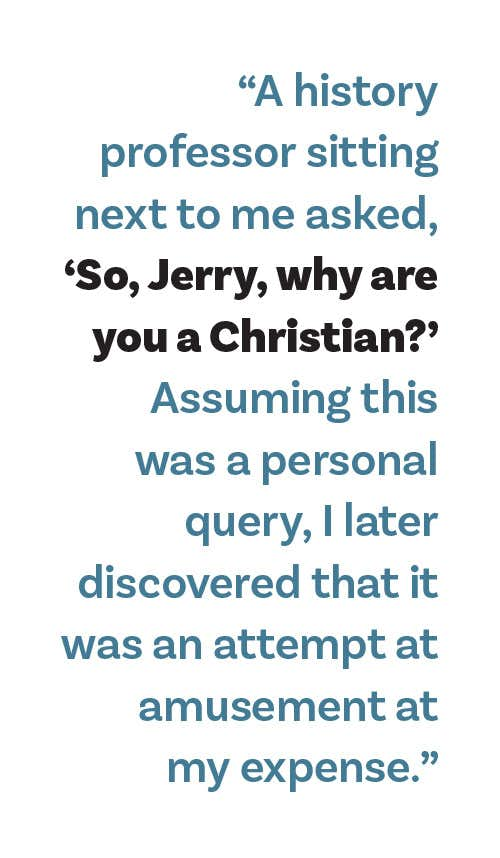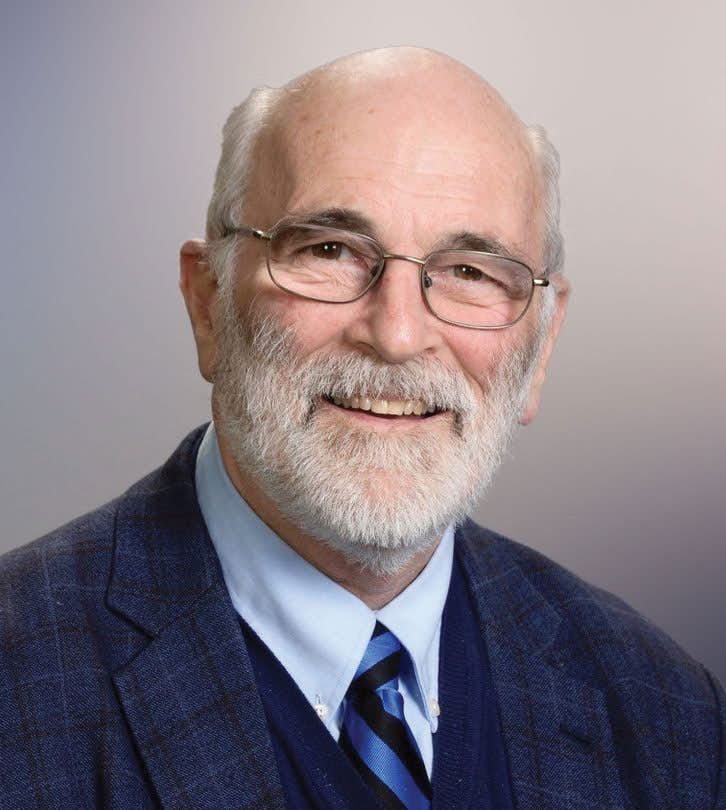How God Uses Our Brokeness
to Bring Others to Himself

Max Mclean, Founder and Artistic Director
Artists need inspiration. One person who inspires me is Jerry Root, the recently retired Professor of Evangelism and Spiritual Formation at Wheaton College. If ever there was a person who modeled the life of a first century apostle, it would be Jerry. Fearless and kind. Patient but firm. Brilliant but humble.
Jerry has taken these traits to model an inspiring ministry of evangelism through encouragement. We have had Jerry speak to our patrons and supporters many times to help us glean his experience. Here, I’d like to share a story of a witnessing experience Jerry had that really inspired me.
I was invited to preach during Evensong at one of the Oxford University colleges. Following the service, I was privileged to eat at the “high table.” (The dining hall scene in the Harry Potter films is a vivid picture of this experience.) It is a place of privilege. Students dine on long tables the length of the hall eating chicken or beef. Faculty dine on an elevated high table feasting on filet mignon or prime rib. Everyone wears their academic gown at the high table.
The meal begins with a prayer (in Latin). After the prayer, a history professor sitting next to me asked, “So, Jerry, why are you a Christian?” Assuming this was a personal query (I later discovered that it was an attempt at amusement at my expense), I responded not by making any philosophical or rational appeal but said simply, “I am a Christian because I am aware of my failures and shortcomings. I have high ideals that I don’t live up to. That is what drove me to God for forgiveness. I have a deep longing to be loved in a way that does not look down on my failures. I sought this in Christ. I found in the Gospel that the love and forgiveness of God speaks to my deepest need.”

The historian was taken aback. Perhaps she had been expecting some kind of defense that she could then spend the rest of the meal trying to dissect. “Well,” she said, “I appreciate that. But that’s not my issue.”
I was a bit perplexed. Was she really saying that she was not aware of any personal shortcomings?
I responded in a tongue-in-cheek way. “I didn’t become perfect overnight. That took two or three weeks.” Everyone broke out in laughter.
A bit later I said to the woman, “Your laughter betrayed you.”
“What do you mean?”
“You couldn’t possibly know me well enough to take my comment about achieving perfection as nothing but nonsense. Your laughter meant that your read of history, human behavior, of even your own struggles is what made it funny.”
The professor acknowledged, “You got me.”
Trusting in the presence of the Lord, I gently pressed. “There seems to be some incongruities here. What gets you by when you make an honest assessment of your life?”

Jerry Root
“I have faith in humanity.”
“Could I ask about that?”
“Yes,” she replied.
“Have you ever been wounded by another human being before?”
“Of course!”
“Have you ever wounded another human being?”
The professor’s answer was more subdued. “I suppose so.” She was a little more forgiving on herself than on those who had wounded her.
“How does this faith in humanity work,” I asked, “when we live in a world where we have been wounded and where we have wounded others?”
At that moment, one of the other Fellows at the high table asked, “How does it work for Christians?” Then the group spent the rest of the evening talking about the love and grace of God. Clearly, the Lord was present at the high table that night.”
I found this inspiring. It showed me how God uses our brokenness. It is in our weakness that we point the way to the One who can mend and heal. If you want to be inspired, I encourage you to read Jerry’s book The Sacrament of Evangelism from Moody Publishers.

